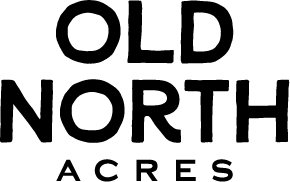Food For Thought: The Dirty Dozen
One of the many ways the industrialized agriculture system has affected our psyche
On a recent Friday morning while washing eggs, I noticed my “seconds“ pile growing bigger than it usually does. Our seconds consist of eggs that are completely fine on the inside, but are stained different colors due to grass, dirt, chicken poop, or some combination of all three. The tints of these stains range from deep clay, pale green and yellow, or light brown. Basically, a poorly, naturally dyed Easter egg.
On our farm, our hens spend their days clucking, scratching, and foraging in our pastures and on the forest edges. They are free to express their natural tendencies. They spread out in the grass that sometimes resembles more of a jungle and soaks my pant legs up to my thighs with dew early in the mornings while I’m refilling water and feed. They create little networks of pathways, trample down big bunches of broomsedge, and spread out across their paddock. Rain or shine they are outside. They take refuge in their mobile coops when the temps climb to the high 90s, or when the showers and thunderstorms roll in. Even though they have luxurious, stainless steel nesting boxes, they prefer to lay their clutches of eggs on the ground in and around the coop (much to the demise of my efficiency). When dusk sets in, they rowdily begin to take their rightful places on perches, huddled up closely for the night.
When I stand back and look at my management of these critters, I realize how different their little lives are than their industrialized counterparts who are confined and piled into spaces to maximize laying yields. Even if those birds have “access” to the outdoors, it’s a stretch to claim they are “pastured“ or “free range“, as they rarely venture outside because it’s away from their climate controlled environment and feed. Lights are kept on 24/7 to keep them laying, even as seasons change, temps drop, and days get shorter.
As I mentioned before, my management of this small flock of chickens is certainly not efficient. I lug around buckets of feed and water, move coops every few days, and spread out feeders to areas of grass that I want impacted by their scratching and trampling. I bend over many times to pick eggs each morning, surveying the tall grass to try and not miss any, pile them in a bucket (because most of the time I forget my egg basket), and collect them in the house before washing and packaging.
This brings me back to the subject of this post: industrialized agriculture and our expectations as consumers of perfect agricultural products.
As I’ve explained, our birds are free to roam in their paddock, nothing is mechanized, and our laying hen “operation“ is largely inefficient. And that creates lots of opportunity to have lots of eggs that would be considered “seconds“ by the majority of consumers. A few dozen eggs each week get grass stains that no amount of scrubbing would remove (Dana and Juni are the #1 and #2 consumer of grass-stained eggs in our household, respectively). If you or I were to open up a carton of eggs at our local grocery chain and see a dozen eggs that were splotchy or stained, we would undoubtedly close that carton, return it to the shelf, and pick another. I was raised in suburban Colorado. My family bought generic white eggs, and the saying “Did you check your eggs?“ at the checkout is something we can probably all relate to no matter where our roots take us back to. We wouldn’t dare by a dozen eggs if they didn’t look like perfect little plastic golf balls in our perfect little styrofoam cartons.
It dawned on me while washing my umpteenth dozen egg by hand for the season that I, just like you, have been deeply programed by the industrialized agriculture system. It champions uniformity and the perception of cleanliness, but those things come at a cost. Confined, stressed animals are prone to diseases, and singular breed dominance results in a complete lack of biodiversity. I expect my eggs to be the same shape, color, and size. I expect not to see a single blemish on my eggs (or fruit or vegetable for that matter). This expectation of perfection is ironic because in order to achieve it, the animal must be stripped away entirely from its natural habitat. It’s also an expectation I will never achieve due to the way we run our operation, and the size of our operation.
At Old North, we champion vastly different priorities than the mechanized, commodified agricultural system owned and ruled by a select few corporations. We want animals that can express their instincts, land that is regenerated from our animals being on it, healthy soil that promotes the next season’s growth, and food that nourishes our community. It’s amazing to me how much constant work, energy, and education it takes me to dismantle those learned expectations!
None of these ideas are novel. There are a lot of organizations and people in the farming world trying to do agriculture a different way and prioritizing what’s important for the land and animals they care for, and I’m grateful to play a small part in that while farming our small slice of earth.
Farmer Jo
